#environmental education programs
Explore tagged Tumblr posts
Text
A Botanical Marvel Unveiled: The First Prairie Pasqueflower at Richard St. Barbe Baker Afforestation Area

View On WordPress
#alkaline soil#biodiversity#Biodiversity Conservation#botanical discovery#botanical studies#city center#Community Engagement#concentric zonation#conservation#Conservation Biology#Conservation Efforts#cultivation challenges#Ecological conservation#Ecological Monitoring#ecological research#Ecological Resilience#Ecological Restoration#ecological significance#ecology#Ecosystem#ecosystem health#ecosystem management#ecosystem services#endangered ecosystems#environmental awareness#Environmental Education#environmental education programs#environmental impact#Environmental Management#Environmental Monitoring
0 notes
Text
I got sent my acceptance letter for an internship for this summer so I need to send in my actual application but I've been laying down going o_o for two hours because I cannot believe that I actually might get this internship

#🪼#literally dream shit. for me. doing environmental education and creating my own programs.#FOR 13k FOR THE YEAR..... a lot of that will have to go to housing probably BUT I GOT AN OFFER TO BE A ROOMMATE FOR AN APARTMENT YESTERDAY#this is MY YEAR FOR FUCKING REAL
14 notes
·
View notes
Text
going into my final week of classes and we always have one last week after the final paper (so the professors have time for grading) where typically the only work we have is one last discussion post.
usually, this post is pretty simple and light (to go easy on us after the final). my ethics class is like “summarize your conclusions from your final paper! :)” and my communications class is like “tell the class about your career goals! :)”
meanwhile, statistics…

#which is very easy - it’s just FUNNY#you thought we were done learning new material after the final? THINK AGAIN!!!!!!!!#READ THE PYTHON SCRIPT AND WEEP#no but stats was my favorite class this semester…#i still wanna take stats II but i haven’t decided for sure yet#it’s a lot of work but it’s very straightforward work#as opposed to my environmental and communications courses that involve a lot of opinion#which is fine but can be really tiring when the thing they want my opinion about is stupid or repetitive#like. FOUR courses made me take that one environmental footprint calculator quiz…#FOUR SEPARATE COURSES#and it’s like. i’m not saying it’s not important - but i GET IT!!!!!!!#at this point it’s just a waste of my time - teach me something i don’t already know!#i definitely should have taken a different online program but that’s beside the point#it’ll even out once i get my master’s#and i’m ultimately happy to have had the ‘broader’ education of environmental science (with a communication minor)#bc i think that’ll serve me better in management later in my career#even if it makes early career stuff more difficult
10 notes
·
View notes
Text
well, i've scraped together enough time to practice the presentation in full twice (~38 mins straight of speaking) and most of my talking points are written down, so I hope I'm good? but earlier I literally put Lord Huron on to trick my brain into calming down
#worried because#a) i have researched the audience but i am still slightly unsure the level of knowledge they have going in#b) worried the audience will ask too many questions specific to their programs that idk how to answer bc i have a diff program#i.e. we don't operate off of the exact same regulations so i won't be able to tell you everything you need to know?#bc i can only tell you the environmental regulations. not the health or education ones#also c) looking like and idiot or speaking too fast or not being able to answer questions etc etc#sigh.
6 notes
·
View notes
Text
I hate shark week. :/
#as an environmental educator it just makes me fucking cringe#the vibes are so off#the goals are lopsided and misguided#maybe things are better than they were 10 or even 5 years ago but I wouldn’t know#bc I can’t bear to watch any of the shark week programs#how are we supposed to change public option about bese animals if we’re still pushing that kind of narrative?#anyway#sharks
4 notes
·
View notes
Text
Public Private Partnerships Unit Chief (INE/PPP) - Washington, DC
Organization: Inter-American Development Bank (IDB) Country: United States City: Washington, DC Office: IDB Washington Posting End Date: 03/12/2025 Join the IDB Group and Make a Lasting Impact The Inter-American Development Bank (IDB) is an international financial institution dedicated to improving lives in Latin America and the Caribbean (LAC) through financial and technical assistance. The IDB…
#" "NGO jobs in Asia")#"NGO jobs in Africa#Advocacy roles in international organizations#Charity jobs worldwide#Development sector jobs#Education-focused NGO positions.#Entry-level NGO positions#Environmental NGO careers#Fundraising jobs in nonprofits#Global NGO employment#Health sector NGO jobs#Humanitarian job opportunities#International aid work#International NGO careers#Internships at NGOs#Jobs in NGOs by country (e.g.#Mid-career NGO roles#NGO jobs#Nonprofit job openings#Nonprofit recruitment#Program manager jobs in NGOs#Remote NGO jobs#Senior management NGO vacancies#Social impact careers#Volunteer opportunities in NGOs
0 notes
Text
Innovative Content Ideas for Engaging Community Radio Programs
Creating captivating and engaging content is the lifeblood of any Community Radio Station (CRS). It’s the magic that transforms your station from a simple broadcast into a beloved community staple. But what keeps listeners tuning in and, more importantly, feeling connected to your station? The answer lies in continuous innovation and deep community involvement. From educational programs to…
#Agriculture Radio Programming#Augmented Reality in Radio#Community Engagement#Community Forums on Radio#Community Radio Content Ideas#Community Radio Innovation#Community Radio Station#Community Talent Show#Crowdsourced Content for Radio#CRS India#CRS License India#discover page#DIY and Hobby Workshops#Educational Radio Shows#Engaging Radio Programming#Environmental Awareness Radio#featured#Festival Radio Broadcasts#Health and Wellness Radio Programs#Interactive Radio Content#Interactive Radio Shows#Job and Career Advice on Radio#Listener-Directed Radio#Live Sports Commentary on Radio#Local Artist Spotlight#Local History Radio#Local Issues on Community Radio#Local Music Radio#mind scrolls#new blog
0 notes
Text

Animal agriculture significantly impacts the climate, contributing to greenhouse gas emissions such as methane, nitrous oxide, and carbon dioxide. Livestock farming accounts for about 14.5% of global emissions, driven by enteric fermentation, deforestation for grazing land, and feed crop production. It also leads to resource-intensive practices, including high water and energy use, and generates pollution through manure and waste management.
#Impact of Animal Agriculture on Climate#environmental issues for climate change#climate education program#environment friendly diet#climate-friendly diet tips
0 notes
Text
🌲 Calling All Canadians!🌲
🌲 Calling All Canadians! Join the GivingTuesday Movement with Friends of the Saskatoon Afforestation Areas! 🌲 This GivingTuesday, Tuesday, December 3, 2024, join Friends of the Saskatoon Afforestation Areas in a global movement of generosity, unity, and giving back to the environment and our community. It’s simple: every act of generosity counts. Whether you give your time, your energy, or a…

View On WordPress
#BioBlitz#biodiversity#Citizen Science#Climate Action#community building#community clean-up#Community Engagement#Community Involvement#Community Programs#community spirit#Community Sustainability#conservation education#conservation leadership#conservation projects#Conservation volunteers#CULTURAL HERITAGE#eco-art#eco-consciousness#Eco-Friendly Events#eco-friendly initiatives#eco-tourism#eco-volunteering#Ecological Restoration#ecological succession#educational outreach#educational signage#educational tours#environment#Environmental Activism#environmental advocacy
0 notes
Text
इग्नू को नेचर पॉजिटिव यूनिवर्सिटी बनाने में योगदान देने पर अमन हुए सम्मानित
बड़ौत (Badaut), 01 सितंबर 2024 (September 1, 2024) — जब बात पर्यावरण संरक्षण (environmental conservation) की होती है, तो अक्सर हमें बड़े नामों और संगठनों (organizations) का ध्यान आकर्षित करना पड़ता है। लेकिन, बागपत (Baghpat) के एक युवा (youth) ने यह साबित कर दिया है कि छोटे कदम (small steps) भी बड़े बदलाव (big changes) ला सकते हैं। इंदिरा गांधी राष्ट्रीय मुक्त विश्वविद्यालय (Indira Gandhi…
#Advantages of participating in educational programs#Aman Kumar’s impact on society#Benefits of Nature Positive programs#Biodiversity conservation in universities#Can education be a catalyst for change?#Can students drive environmental initiatives?#Can youth bring transformation in their communities?#Can youth contribute to community development?#Can youth drive change with their ideas?#Can youth influence society through their actions?#Can youth leverage their knowledge for change?#Can youth take on leadership roles?#Do student organizations impact society?#Do we need awareness campaigns?#Does higher education enhance moral responsibility?#Does higher education increase social awareness?#Does higher education support career growth?#Educational programs for social change#Effects of Nature Positive universities#Environmental awareness initiatives#Examples of youth as sources of inspiration#How to assess the effectiveness of Nature Positive initiatives?#Impact of educational institutions on society#Impact of experiential learning#Importance of Nature Positive initiatives#Inspiration from youth like Aman Kumar#Is higher education a path for social development?#Is participation in programs beneficial?#Is the goal of higher education just to earn a degree?#Lessons from Aman Kumar’s journey
0 notes
Text
How does one convince a Sumatran Rhino to play hide and seek in the rainforest?
The Sumatran rhinoceros (Dicerorhinus sumatrensis) is one of the most endangered large mammals in the world, with fewer than 80 individuals remaining in the wild. These magnificent creatures, native to the dense tropical forests of Indonesia and Malaysia, are known for their elusive nature and solitary habits. Imagining a Sumatran rhino playing hide and seek in the rainforest is a whimsical and…
#animal behavior#animal enrichment#animal training#animal welfare#anti-poaching#biodiversity#conservation awareness#conservation efforts#conservation initiatives#creative engagement#educational programs#endangered species#environmental outreach#ethical wildlife care#habitat preservation#hide and seek#natural behavior#playful learning#positive reinforcement#public involvement#rainforest#rhino conservation#rhino habitat#species protection#Sumatran rhino#Sumatran rhinoceros#tropical forests#wildlife conservation#wildlife education#wildlife preservation
0 notes
Text
RVS College Jamshedpur Students Lead Environmental Awareness Program
NSS team plants 70 saplings, educates on dengue prevention and water harvesting RVS College’s NSS department organized an environmental awareness program at a local school, planting saplings and educating on health issues. JAMSHEDPUR – The NSS department of RVS College of Engineering and Technology conducted an environmental awareness program at a local +2 school, focusing on dengue prevention…
#शिक्षा#Dengue Prevention#Dr. Dilip Kumar Haldhar#education#environmental awareness program#environmental education#Jamshedpur college initiative#RVS College NSS#Sapling Plantation#school outreach program#student community service#water harvesting
0 notes
Text
MIT Emerging Talent opens pathways for underserved global learners
New Post has been published on https://thedigitalinsider.com/mit-emerging-talent-opens-pathways-for-underserved-global-learners/
MIT Emerging Talent opens pathways for underserved global learners


Two ambitions drive Eric Tuyizere: advancing his technological skills and following his passion for entrepreneurship. In July 2023, when he discovered that MIT’s Emerging Talent program was launching the fifth cohort of its Certificate in Computer and Data Science, he applied right away. Seven months in, he says he has found even more than he dreamed of: community and support. This unexpected benefit has turned into a key motivation for Tuyizere as he combines work on the challenging curriculum with the demands of daily life.
“Apart from being my colleagues on the Emerging Talent program, we are friends,” says Tuyizere, a learner from Rwanda. “I really like the community.”
Tuyizere is one of 100 individuals in Emerging Talent’s current cohort, which launched in September 2023. Selected from more than 2,000 applicants, 85 percent of these learners are refugees, migrants, or have been impacted by forced displacement. They join the ranks of the more than 160 individuals who have already completed the program.
The program is the brainchild of Admir Masic, who became a teenage refugee in Croatia in 1992 after escaping from the horrors of war that was devastating his homeland in Bosnia and Herzegovina. Today, Masic is an associate professor of civil and environmental engineering and a faculty fellow in archaeological materials at MIT.
“I am overwhelmed with gratitude at having made it to MIT, a place that values innovation, science, and excellence, but also with a sense of responsibility,” Masic says. “There are millions of people forcibly displaced every year — for political, economic, social, or, more recently, climate change-related reasons. How can I do my part to support those who have come after me?”
Inspired by his life experience and conviction, Masic founded the MIT Refugee Action Hub (ReACT) in 2017, with the goal of developing global education programs for refugees and displaced communities. To date, ReACT has offered its Certificate in Computer and Data Science to five cohorts of talented learners across the globe, helping them grow academically, advance their skills, leverage their expertise, and access a professional career in the tech field. Together, the certificate and ReACT are now MIT Emerging Talent, a program that extends the reach and impact of MIT’s pioneering efforts to reach the most talented underserved learners. Part of the Abdul Latif Jameel World Education Lab at MIT Open Learning, Emerging Talent is expanding ReACT’s proven model of upskilling refugees to other underrepresented communities around the world including migrants, first-generation and low-income students, and historically excluded groups.
Hidden realities
According to the U.N. High Commission on Refugees, more than 110 million people were forcibly displaced worldwide as of May 2023. This number is equivalent to the population of the four largest states in the United States: California, Texas, Florida, and New York. It also marks the largest ever single-year increase propelled by ongoing wars, political instability, and civil conflicts. Learners in this year’s cohort come from 24 different countries, and are experiencing situations like war in Ukraine and Sudan, military persecution in Myanmar, dictatorship in Eritrea, and oppression by the Taliban in Afghanistan. Conflict-impacted learners from Ethiopia, Democratic Republic of Congo, Rwanda, and many other countries may each have their own unique story, but their shared experience of displacement drives their desire to build their skills and education in order to improve their situation.
“It’s like a cultural exchange, we share things like songs and dances — everything which is interesting to our own culture helps us to be more interactive,” says Tuyizere, citing in particular a dance taught to him by one of his peers from Ukraine.
Along with MIT’s trademark rigor and relevance, a key design principle for the program is adaptation to meet the unique needs of underrepresented talent and make them feel welcomed and part of a safe learning community. For Emerging Talent’s learners, adaptation is essential for enabling peer learning, capitalizing on multicultural perspectives to benefit all, and permitting appropriate flexibility for students who come from other education systems.
“Education has always been a challenge for women in Afghanistan,” says Somaia Zabihi, who joined the Emerging Talent team in 2023 as a computer science instructor. “Going to college for a girl used to be as strange as planning a trip to the moon. In past years, especially in big cities, some progress had been made, and girls could think about their dreams instead of being forced into marriage. Unfortunately, with the Taliban in power, things have gone backwards, taking us back even further.”
Zabihi previously worked as the dean of computer science faculty at the University of Herat in Afghanistan, but relocated with her family to Canada because of the ongoing situation in her home country. She is currently designing custom workshops on foundational skills, delivering recitation sessions, and holding office hours for the latest cohort of Emerging Talent learners.
Fostering opportunities
The Emerging Talent program exemplifies MIT Open Learning’s Agile Continuous Education (ACE) model. Advanced by leading educators and researchers at MIT, the ACE model is focused on providing education in a flexible, cost-effective, and time-efficient manner by combining rigorous online learning with at-work application of knowledge. In the case of the Certificate in Computer and Data Science, learners complete MIT courses on edX, and apply learned skills and gain real-life experiences through capstone projects or internships. This allows them to customize their path based on personal preferences. To augment these skills, Emerging Talent works with organizations such as Paper Airplanes for English training; the Global Mentorship Initiative and MENTEE for mentoring opportunities; Close the Gap, Give Internet, and Unconnected for device access; and Na’amal for employability skills training.
“Now that the learners have completed the required academic classes, they are honing their skills and interests through elective courses and group project work,” Megan Mitchell, associate director for Pathways for Talent, says of the current Emerging Talent cohort. “They will be actively pursuing job opportunities that will allow them to put to practice what they have learned and bring extensive value to the companies they join.”
From high school graduates to advanced degree seekers, Emerging Talent learners apply to the Certificate in Computer and Data Science for an opportunity. Over 70 percent of accepted learners have university degrees; yet 60 percent are unemployed, with forced geographic relocation, ongoing wars, overwhelming family responsibilities, and restrictive labor regulations to blame. The majority of those who are working are underemployed. Despite their varied situations, the program’s diverse learners soon discover a shared desire to transform their careers by acquiring new skills and experience to enhance their professional competencies and adaptability. All are looking for a way to develop their technical capabilities and contribute to society. As Kaung Hein Htet expressed in his application to Emerging Talent: “Because of the current political crisis in Myanmar, I cannot accomplish my passion and do my favorite things. I want to become a data scientist who can help people around the world.”
By looking beyond learners’ immediate circumstances, Emerging Talent ensures that every learner is given an equal opportunity to participate and benefit from being part of the community.
“I was seen for who I am, without proof or requirement to show my hard copy diploma evaluated by some other agency,” says Pavel Illin, an asylee from Russia currently living in the United States who completed the program in 2021. After graduating, Pavel began working at the New York City Mayor’s Office as a software engineer. “And the fact that I’ve been seen for just being there gives me hope that not everything is lost. It’s possible to succeed.”
The Emerging Talent team is sourcing experiential learning opportunities for its current cohort. If you want to help support or engage a learner, email [email protected].
#000#2023#Abdul Latif Jameel World Education Lab (J-WEL)#Africa#agile#airplanes#Canada#career#Careers#challenge#change#cities#Civil and environmental engineering#classes#Classes and programs#climate#climate change#collaborative#college#Community#Companies#computer#Computer Science#Computer science and technology#Conflict#continuous#courses#dance#data#data science
0 notes
Text
Here's the top 2 stories from each of Fix The News's six categories:
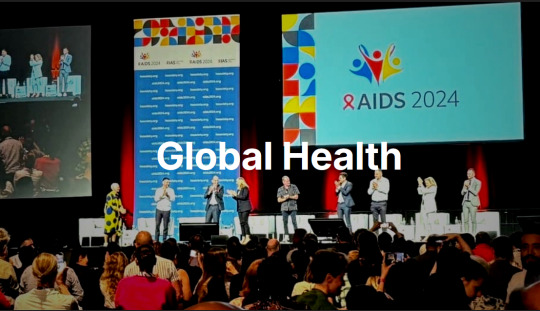
1. A game-changing HIV drug was the biggest story of 2024
In what Science called the 'breakthrough of the year', researchers revealed in June that a twice-yearly drug called lenacapavir reduced HIV infections in a trial in Africa to zero—an astonishing 100% efficacy, and the closest thing to a vaccine in four decades of research. Things moved quick; by October, the maker of the drug, Gilead, had agreed to produce an affordable version for 120 resource-limited countries, and by December trials were underway for a version that could prevent infection with just a single shot per year. 'I got cold shivers. After all our years of sadness, particularly over vaccines, this truly is surreal.'
2. Another incredible year for disease elimination
Jordan became the first country to eliminate leprosy, Chad eliminated sleeping sickness, Guinea eliminated maternal and neonatal tetanus, Belize, Jamaica, and Saint Vincent & the Grenadines eliminated mother-to-child transmission of HIV and syphilis, India achieved the WHO target for eliminating black fever, India, Viet Nam and Pakistan eliminated trachoma, the world’s leading infectious cause of blindness, and Brazil and Timor Leste eliminated elephantiasis.
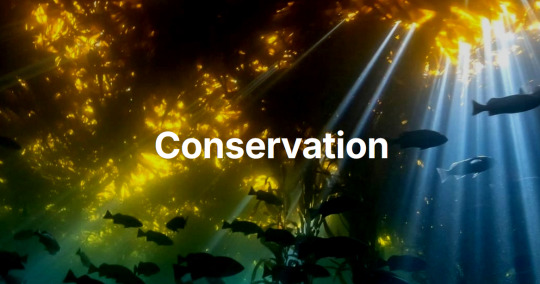
15. The EU passed a landmark nature restoration law
When countries pass environmental legislation, it’s big news; when an entire continent mandates the protection of nature, it signals a profound shift. Under the new law, which passed on a knife-edge vote in June 2024, all 27 member states are legally required to restore at least 20% of land and sea by 2030, and degraded ecosystems by 2050. This is one of the world’s most ambitious pieces of legislation and it didn’t come easy; but the payoff will be huge - from tackling biodiversity loss and climate change to enhancing food security.
16. Deforestation in the Amazon halved in two years
Brazil’s space agency, INPE, confirmed a second consecutive year of declining deforestation in the Brazilian Amazon. That means deforestation rates have roughly halved under Lula, and are now approaching all time lows. In Colombia, deforestation dropped by 36%, hitting a 23-year low. Bolivia created four new protected areas, a huge new new state park was created in Pará to protect some of the oldest and tallest tree species in the tropical Americas and a new study revealed that more of the Amazon is protected than we originally thought, with 62.4% of the rainforest now under some form of conservation management.
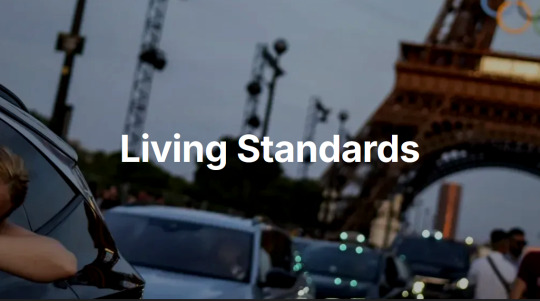
39. Millions more children got an education
Staggering statistics incoming: between 2000 and 2023, the number of children and adolescents not attending school fell by nearly 40%, and Eastern and Southern Africa, achieved gender parity in primary education, with 25 million more girls are enrolled in primary school today than in the early 2000s. Since 2015, an additional 110 million children have entered school worldwide, and 40 million more young people are completing secondary school.
40. We fed around a quarter of the world's kids at school
Around 480 million students are now getting fed at school, up from 319 million before the pandemic, and 104 countries have joined a global coalition to promote school meals, School feeding policies are now in place in 48 countries in Africa, and this year Nigeria announced plans to expand school meals to 20 million children by 2025, Kenya committed to expanding its program from two million to ten million children by the end of the decade, and Indonesia pledged to provide lunches to all 78 million of its students, in what will be the world's largest free school meals program.
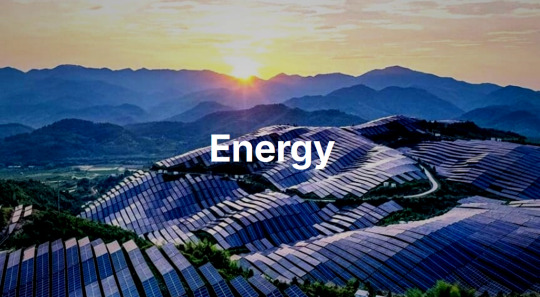
50. Solar installations shattered all records
Global solar installations look set to reach an unprecedented 660GW in 2024, up 50% from 2023's previous record. The pace of deployment has become almost unfathomable - in 2010, it took a month to install a gigawatt, by 2016, a week, and in 2024, just 12 hours. Solar has become not just the cheapest form of new electricity in history, but the fastest-growing energy technology ever deployed, and the International Energy Agency said that the pace of deployment is now ahead of the trajectory required for net zero by 2050.
51. Battery storage transformed the economics of renewables
Global battery storage capacity surged 76% in 2024, making investments in solar and wind energy much more attractive, and vice-versa. As with solar, the pace of change stunned even the most cynical observers. Price wars between the big Chinese manufacturers pushed battery costs to record lows, and global battery manufacturing capacity increased by 42%, setting the stage for future growth in both grid storage and electric vehicles - crucial for the clean flexibility required by a renewables-dominated electricity system. The world's first large-scale grid battery installation only went online seven years ago; by next year, global battery storage capacity will exceed that of pumped hydro.
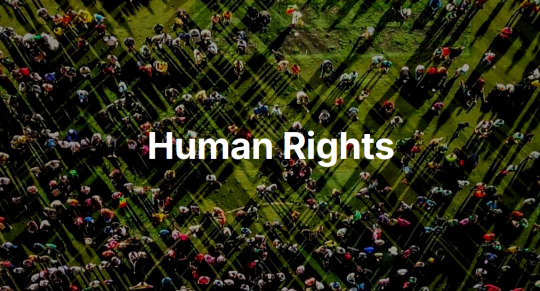
65. Democracy proved remarkably resilient in a record year of elections
More than two billion people went to the polls this year, and democracy fared far better than most people expected, with solid voter turnout, limited election manipulation, and evidence of incumbent governments being tamed. It wasn't all good news, but Indonesia saw the world's biggest one day election, Indian voters rejected authoritarianism, South Korea's democratic institutions did the same, Bangladesh promised free and fair elections following a 'people's victory', Senegal, Sri Lanka and Botswana saw peaceful transfers of power to new leaders after decades of single party rule, and Syria saw the end of one of the world's most horrific authoritarian regimes.
66. Global leaders committed to ending violence against children
In early November, while the eyes of the world were on the US election, an event took place that may prove to be a far more consequential for humanity. Five countries pledged to end corporal punishment in all settings, two more pledged to end it in schools, and another 12, including Bangladesh and Nigeria, accepted recommendations earlier in the year to end corporal punishment of children in all settings. In total, in 2024 more than 100 countries made some kind of commitment to ending violence against children. Together, these countries are home to hundreds of millions of children, with the WHO calling the move a 'fundamental shift.'
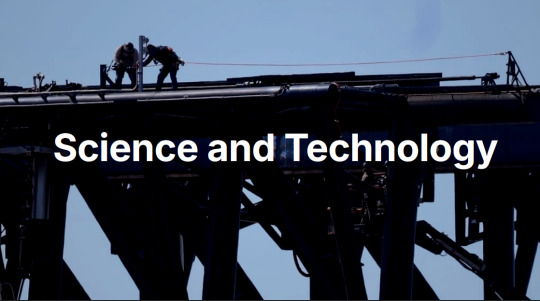
73. Space exploration hit new milestones
NASA’s Europa Clipper began a 2.9 billion kilometre voyage to Jupiter to investigate a moon that may have conditions for life; astronomers identified an ice world with a possible atmosphere in the habitable zone; and the James Webb Telescope found the farthest known galaxy. Closer to Earth, China landed on the far side of the moon, the Polaris Dawn crew made a historic trip to orbit, and Starship moved closer to operational use – and maybe one day, to travel to Mars.
74. Next-generation materials advanced
A mind-boggling year for material science. Artificial intelligence helped identify a solid-state electrolyte that could slash lithium use in batteries by 70%, and an Apple supplier announced a battery material that can deliver around 100 times better energy density. Researchers created an insulating synthetic sapphire material 1.25 nanometers thick, plus the world’s thinnest lens, just three atoms across. The world’s first functioning graphene-based semiconductor was unveiled (the long-awaited ‘wonder material’ may finally be coming of age!) and a team at Berkeley invented a fluffy yellow powder that could be a game changer for removing carbon from the atmosphere.
-via Fix The News, December 19, 2024
#renumbered this to reflect the article numbering#and highlight just how many stories of hope there are#and how many successes each labeled story contains#2024#good news#hope#hope posting#hopeposting#hopepunk#conservation#sustainability#public health#energy#quality of life#human rights#science and technology
3K notes
·
View notes
Text
Disaster Risk Management Unit Chief – Washington, DC | Inter-American Development Bank (IDB)
Location: Washington, DC, United States Organization: Inter-American Development Bank (IDB) Contract Type: International Staff Contract Contract Length: 36 months (renewable upon mutual agreement) Application Deadline: 03/12/2025 Make an Impact in Disaster Risk Management at IDB Are you a seasoned expert in Disaster Risk Management (DRM) with leadership experience and a strategic mindset? The…
#" "NGO jobs in Asia")#"NGO jobs in Africa#Advocacy roles in international organizations#Charity jobs worldwide#Development sector jobs#Education-focused NGO positions.#Entry-level NGO positions#Environmental NGO careers#Fundraising jobs in nonprofits#Global NGO employment#Health sector NGO jobs#Humanitarian job opportunities#International aid work#International NGO careers#Internships at NGOs#Jobs in NGOs by country (e.g.#Mid-career NGO roles#NGO jobs#Nonprofit job openings#Nonprofit recruitment#Program manager jobs in NGOs#Remote NGO jobs#Senior management NGO vacancies#Social impact careers#Volunteer opportunities in NGOs
0 notes
Text
Things Biden and the Democrats did, this week.
The Consumer Financial Protection Bureau put forward a new regulation to limit bank overdraft fees. The CFPB pointed out that the average overdraft fee is $35 even though majority of overdrafts are under $26 and paid back with-in 3 days. The new regulation will push overdraft fees down to as little as $3 and not more than $14, saving the American public collectively 3.5 billion dollars a year.
The Environmental Protection Agency put forward a regulation to fine oil and gas companies for emitting methane. Methane is the second most abundant greenhouse gas, after CO2 and is responsible for 30% of the rise of global temperatures. This represents the first time the federal government has taxed a greenhouse gas. The EPA believes this rule will help reduce methane emissions by 80%
The Energy Department has awarded $104 million in grants to support clean energy projects at federal buildings, including solar panels at the Pentagon. The federal government is the biggest consumer of energy in the nation. The project is part Biden's goal of reducing the federal government's greenhouse gas emissions by 65% by 2030. The Energy Department estimates it'll save taxpayers $29 million in the first year alone and will have the same impact on emissions as taking over 23,000 gas powered cars off the road.
The Education Department has cancelled 5 billion more dollars of student loan debt. This will effect 74,000 more borrowers, this brings the total number of people who've had their student loan debt forgiven under Biden through different programs to 3.7 Million
U.S. Agency for International Development has launched a program to combat lead exposure in developing countries like South Africa and India. Lead kills 1.6 million people every year, more than malaria and AIDS put together.
Congressional Democrats have reached a deal with their Republican counter parts to revive the expanded the Child Tax Credit. The bill will benefit 16 million children in its first year and is expected to lift 400,000 children out of poverty in its first year. The proposed deal also has a housing provision that could see 200,000 new affordable rental units
11K notes
·
View notes